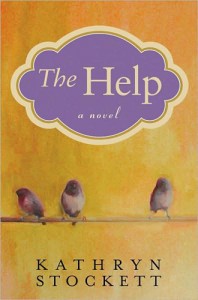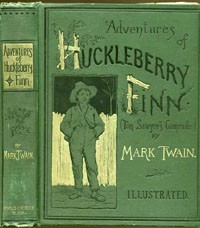The Help
 Kathryn Stockett’s novel The Help was a bargain at the recent publisher’s book sale in my locale, but it would be a bargain at any price. It leaves me with plenty to think about.
Kathryn Stockett’s novel The Help was a bargain at the recent publisher’s book sale in my locale, but it would be a bargain at any price. It leaves me with plenty to think about.
Set in Jackson, Mississippi, and rotating among three narrative points of view, The Help brings to life the complex racial tensions of the civil rights era. As the flyleaf puts it, it explores “the lines we abide by, and the ones we don’t.” Publisher’s Weekly summarizes it this way:
Eugenia Skeeter Phelan is just home from college in 1962, and, anxious to become a writer, is advised to hone her chops by writing about what disturbs you. The budding social activist begins to collect the stories of the black women on whom the country club sets relies and mistrusts enlisting the help of Aibileen, a maid who’s raised 17 children, and Aibileen’s best friend Minny, who’s found herself unemployed more than a few times after mouthing off to her white employers. The book Skeeter puts together based on their stories is scathing and shocking, bringing pride and hope to the black community, while giving Skeeter the courage to break down her personal boundaries and pursue her dreams.
In the course of developing its main plot, the novel provides a thought-provoking picture of the possibilities for female friendship, characterized at its worst by manipulative pettiness and treachery, at its best by mutual support and empowerment. The women of respectable white society in Jackson exhibit one side of this coin, the women of the oppressed black community the other.
The Help provides an extended experience of the strange ironies of the mistress-maid relationship. The official attitude of the white mistresses is racist, ignorant, full of condescension and fear and hatred. But in practice, they entrust to their maids most of the responsibility for everything of real significance: caring for children, nourishing bodies, maintaining living spaces, preserving the inheritance of practical wisdom and good work that creates beauty.
Like any book, there were some things I scratched my head over. There’s a love story that doesn’t seem to go anywhere, and there are a few scenes that seem gratuitous. Some of the characterizations seem exaggerated. But a book does not have to be formalistically perfect to be rich, powerful, or true. I loved the chance to see what life might have felt like in this time and place, I loved the rich texture of relationships, I loved watching the characters grow in courage and stature, I loved the personalities explored. It truly is, as promised, “pitch-perfect,” a deeply moving book.
I’ll let Skeeter Phelan, the tale’s thoughtful white aspiring writer, have the last word. Her thought captures Stockett’s ability to balance between two points of view, often within the same person’s mind. It captures, too, the truth that even the best things — courage, spiritual growth, social change — come at a cost. One of the treasures of freedom is the responsibility of weighing the costs for yourself, and making your decision:
Sometimes, when I’m bored, I can’t help but think what my life would be like if I hadn’t written the book. Monday, I would’ve played bridge. And tomorrow night, I’d be going to the League meeting and turning in the newsletter. Then on Friday night, Stuart would take me to dinner and we’d stay out late and I’d be tired when I got up for my tennis game on Saturday. Tired and content and… frustrated.
Because Hilly would’ve called her maid a thief that afternoon, and I would’ve sat there and listened to it. And Elizabeth would’ve grabbed her child’s arm too hard and I would’ve looked away, like I didn’t see it. And I’d be engaged to Stuart and I wouldn’t wear short dresses, only short hair, or consider doing anything risky like write a book about colored housekeepers, too afraid he’d disapprove. And while I’d never lie and tell myself I actually changed the minds of people like Hilly and Elizabeth, at least I don’t have to pretend I agree with them anymore.


